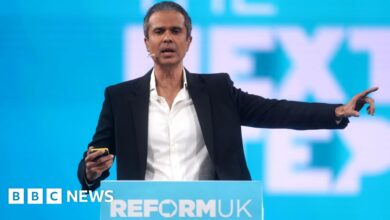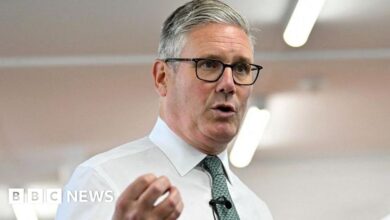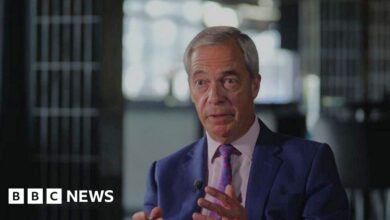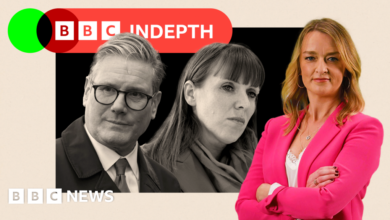Chancellor makes switch from pain to gain
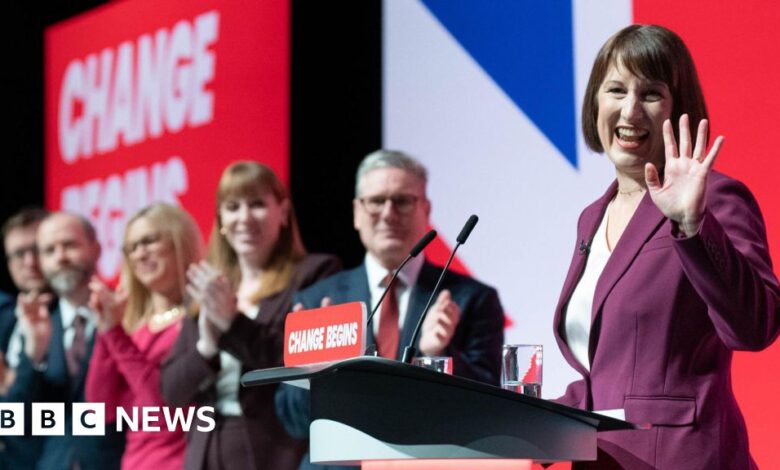
The chancellor’s speech at the Labour Party conference was an important and clear change in tone from the government on the economy.
Just three weeks ago the PM warned of a “painful Budget” prompting a frenzy of speculation over where spending cuts and tax rises would fall.
Now she is focusing on the “long-term prize” that she promises will follow if Labour can restore “stability”.
“My optimism for Britain burns brighter than ever, my ambition knows no limit,” she told delegates in Liverpool.
The fragile British consumer might not quite be ready, after years of rolling inflationary crises, for tough decisions on tax and spending.
Consumer confidence was hit, at least this month, and some retailers spooked by disappointing sales after this talk of pain.
The chancellor was sending a message that the tax rises, when they come, will not primarily hit hard-pressed working families.
She embraced the “choice” she made to give above-inflation pay rises to millions of public sector workers, saying she was willing to have a fight over it with the Conservatives.
Public spending will grow in real terms, or as she put it clearly in her speech there will be “no return to austerity”.
The chancellor gave more detail about how she will prioritise investment spending, especially in infrastructure.
The plans she has inherited are for a cut in the share of the economy devoted to public investment.
“Growth is the challenge… and investment is the solution,” she said.
We are heading towards some changes to the rules on government borrowing in order to allow more investment.
This should work with the newly announced Industrial Strategy, to be released with the Budget on 30 October. It might also help with bringing in significant foreign investment at a crucial summit next month.
It was a coincidence, but the chancellor’s speech came on the two-year anniversary of Liz Truss’s mini-Budget. If anyone forgot the auspicious date, the former PM popped up with a specially crafted video to say that the Kwarteng/Truss fiscal plans should have been implemented in full.
This was fortuitous for the chancellor, as her speech defined herself as a type of anti-Truss.
The Truss legacy played an important part in delivering Reeves to her position, with a commanding Commons majority. Both shared an ambition to increase British growth. The tough decisions Reeves says she needs to make at the Budget are the contrast to the Truss episode.
But could it be that the Budget’s bite, will now prove to be significantly less painful than its bark?

